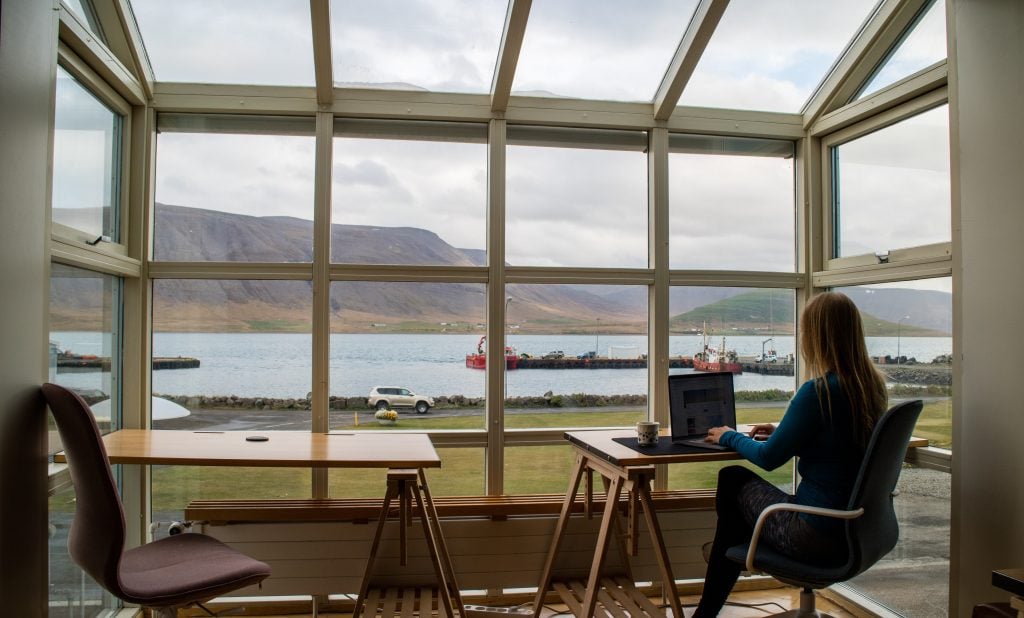Will We Work for DAOs in the Future?
How do you imagine your work week in the future? Maybe you will combine various […]
How do you imagine your work week in the future? Maybe you will combine various […]
We all have this friend who works at a remote-first company and appears to be […]
It’s a competitive tech jungle out there! Looking at the job board on LinkedIn alone, […]
“Sometimes when my daughter plays with her dolls, she tells her grandma not to bother […]
Balancing work and life has never been easy. One day you find yourself longing for […]
• Greek AI-enabled hiring platform Bryq raised $4M in a pre-Series A round, with No […]
Working remotely became very popular since the pandemic hit the world back in 2020. At […]
LucidLink, the US-Bulgarian cloud storage startup that connects creative teams around the world, announced the […]
“What retains me in my job is the team, the freedom to experiment and jump […]
Like every other person, Mihai Cepoi, the founder of Romanian recruitment platform Jobful, has been […]
Difficulties for finding the appropriate staff was what drove Upshift’s co-founder and CEO Steve Anevski […]
The digitalization and modernization of the manufacturing are probably two of the biggest challenges for […]
In fact, there is no universally accepted understanding of what the future of work will be like. As a concept, the future of work describes the shifts in the way people will work over the next decade, influenced by technological, social, and generational changes.
Times, technologies, and demographics are changing so fast, that the predictions made today, may already be obsolete tomorrow.
Then what impact do these dynamics have on the business models of modern organizations? How do remote working, online collaboration, and digital transformation transform the workforce? What does the future workplace look like today? And what will be the employment opportunities 10 years from now?
Globally, around 40% of the working population is worried about artificial intelligence putting their jobs at risk in the future. While almost 80% are ready to learn new skills or re-train to remain relevant in the future workforce.
In Europe, disparities between clusters are widening and 48 hubs generate more than one-third of the job growth in the continent. Among them are the cities of Amsterdam, Copenhagen, and London. While Eastern Europe is a region with a declining workforce and comparatively lower educational attainment.

To help SEE companies reverse the trend and become one of the dynamic hubs in Europe. The region is already considered an emerging talent hub, and with the right tools and mindset, it can be a step ahead in the future of work game.
We want to present the insights, expert opinions, and actionable advice that companies and talent need to adopt an agile mindset, build a strong company culture, and set themselves up for success in any scenario.
From agile transformation and remote-first company culture to leadership styles of the future and future work models, our goal is to dive deep into all of the key Future of Work topics. These also include remote collaboration, startup company culture, approaches for attracting and retaining talent, and work automation.

The Recursive authors who are focused on the topic – Elena Vrabie and Bojan Stojkovski, constantly talk with regional experts in human resources and organizational psychology, as well as with workers of remote-first companies to present the most accurate picture of the current state of work in CEE.
Find out more success stories of companies that are building future of work solutions or which are excelling at building future organizational models. Meet the faces behind companies such as DRUID AI, Robotiq.ai, Motion Software, and LucidLink.
Subscribe to The Recursive newsletter to get the newest Future of Work insights in your mailbox.